
The Ukrainian
Intelligentsia and
Genocide
The Ukrainian
Intelligentsia and
Genocide
The Struggle for History,
Language, and Culture in the
1920s and 1930s
Victoria A. Malko
LEXINGTON BOOKS
Lanham Boulder New York London
Published by Lexington Books
An imprint of The Rowman & Littlefield Publishing Group, Inc.
4501 Forbes Boulevard, Suite 200, Lanham, Maryland 20706
www.rowman.com
86-90 Paul Street, London EC2A 4NE
Copyright 2021 by The Rowman & Littlefield Publishing Group, Inc.
All rights reserved. No part of this book may be reproduced in any form or by any electronic or mechanical means, including information storage and retrieval systems, without written permission from the publisher, except by a reviewer who may quote passages in a review.
British Library Cataloguing in Publication Information Available
Library of Congress Cataloging-in-Publication Data
Names: Malko, Victoria A., 1965- author.
Title: The Ukrainian intelligentsia and genocide : the struggle for history, language, and culture in the 1920s and 1930s / Victoria A. Malko.
Other titles: Struggle for history, language, and culture in the 1920s and 1930s
Description: Lanham : Lexington Books, [2021] | Includes bibliographical references and index.
Identifiers: LCCN 2021036058 (print) | LCCN 2021036059 (ebook) | ISBN 9781498596787 (cloth) | ISBN 9781498596794 (ebook)
Subjects: LCSH: GenocideUkraineHistory20th century. | UkraineHistoryFamine, 1932-1933. | FaminesUkraineHistory20th century. | FaminesSoviet UnionHistory20th century. | IntellectualsUkraineHistory20th century. | UkraineHistory1921-1944. | National characteristics, Ukrainian.
Classification: LCC DK508.8377 .M295 2021 (print) | LCC DK508.8377 (ebook) | DDC 947.708/4dc23
LC record available at https://lccn.loc.gov/2021036058
LC ebook record available at https://lccn.loc.gov/2021036059
 The paper used in this publication meets the minimum requirements of American National Standard for Information SciencesPermanence of Paper for Printed Library Materials, ANSI/NISO Z39.48-1992.
The paper used in this publication meets the minimum requirements of American National Standard for Information SciencesPermanence of Paper for Printed Library Materials, ANSI/NISO Z39.48-1992.
Contents
Figures
A choir of the Kyv Labor School No. 1 named after Taras Shevchenko, with school principal Volodymyr Durdukivskyi, 1920s
Poster Only the Red Army will give us bread by N. Pomansky (Moscow, 1919)
Famished children, Berdiansk, Ukraine, 1922
A group of delegates from the Kharkiv region at the First All-Ukrainian Congress of Teachers, Kharkiv, 1925
A formation of pioneers of the F. E. Dzerzhinsky Commune, headed by A. S. Makarenko, at a ceremony dedicated to the launching of the reconstructed machine-building factory named after S. Ordzhonikidze in Kramatorsk, Kramatorsk district, 1931
Schoolchildren attending lessons in a German seven-year school, Sinelnykivskyi district, Dnipropetrovsk region, 1933
Pioneer of Bolshevism in Ukraine and Shumskyis successor as the Peoples Commissar of Education, comrade Mykola Skrypnyk, speaks at a meeting of the Communist Childrens Movement (Young Pioneers), Kharkiv, 1930
An overhead view of the courtroom in the Kharkiv Opera House during the trial of the Union for the Liberation of Ukraine (SVU), 193098
Defendants teacher Nina Tokarivska (first row), writer Liudmyla Cherniakhivska (second row), the former prime minister of the Ukrainian National Republic and leader of the Ukrainian Autocephalous Orthodox Church Prof. V. M. Chekhivskyi, and student Borys Matushevskyi, during the SVU show trial, 1930
Defendant Mykola Pavlushkov, student of the Kyv Institute of Peoples Education, talks with defense counsel Semen Ratner during the court proceedings in the SVU trial, Kharkiv, 1930
Study, New York, 1934 by John Marin (18701953)
Propaganda cartoon in the Chervonyi perets (Red Pepper) satirical biweekly magazine, 1930 (front, see over back)
Propaganda cartoon in the Chervonyi perets (Red Pepper) satirical biweekly magazine, 1930 (back)
Mass uprisings in the Ukrainian SSR in 1930
Schoolchildren from the village of Rakovychi, Radomysl district, Kyv region (hot breakfast), 1934
Vasyl Ivchuk, school principal in the village Dudarkiv, Boryspil district (second row, second on the left) with his colleagues and fifth-grade students, 1937
Hungernde und verwahrloste Kinder, die sogenannten Besprisornyje (Starving and neglected children, the so-called bezprytulni) by Alexander Wienerberger, 1933
Mortality from the Great Famine in 19321933 in the Ukrainian SSR
Tables
Primary schools, teachers, and students (grades 1 through 4) in Ukraine, 19141934
This book is a result of a long-term study of complex and devastating effects of the Holodomorgenocide against the Ukrainian nationperpetrated in the 1920s and 1930s. Its first target were members of Ukrainian intelligentsia, the brain of the nation, in the words of Raphael Lemkin, the father of the U.N. Convention on the Prevention and Punishment of the Crime of Genocide. Ukrainian intelligentsia faced existential threats, resisted, but ultimately were forced to make the right choice and serve the Soviet regime in order to survive. The resurgence of Stalinism in Russia and the hybrid war against Ukraine that has commenced since the Revolution of Dignity, 20132014, demonstrate the continuity between Stalinist and neo-Stalinist attempts to prevent the crystallization of the nation and subvert Ukraine from within by nonlethal and lethal means. Thus, the struggle for history, language, and culture continues. This book examines how and why this genocide occurred and what role intellectuals, especially teachers, played and continue to play in shaping, contesting, and inculcating history.
Views expressed in this book were informed by conversations with colleagues at a series of conferences and symposia: the International Forum Ukraine Remembers, World Acknowledges on the eighty-fifth anniversary of the HolodomorGenocide; the International Conference Problem of Existential Choice during the HolodomorGenocide at Taras Shevchenko National University in Kyv, Ukraine; the Association for the Study of Nationalities Annual Convention in New York; and Annual Conventions of the Association for Slavic, East European, and Eurasian Studies in Boston and San Francisco. Observations and insights offered by Professors Myroslava Antonovych, Jars Balan, Halyna Hryn, Iaroslav Kalakura, Nataliia Levchuk, Lubomyr Luciuk, Vasyl Marochko, Daria Mattingly, Volodymyr Serhiichuk, and Iurii Shapoval shaped research on this topic. The novel coronavirus pandemic interrupted already-scheduled presentations in Washington, D.C., and Berlin, Germany, yet allowed to complete revisions while sheltering in place in Fresno, California.
I am beholden to Dr. Olga Bertelsen, who generously shared her own perspective on the role and fate of the Ukrainian intelligentsia in the 1920s and 1930s, bravely read, and extensively commented on the entire manuscript in very rough form. Professor Hiroaki Kuromiya provided helpful critique on the final draft. Professor Emeritus Roman Serbyn sharpened the authors understanding of Raphael Lemkins concept of Soviet genocide against the Ukrainian nation. They gave the author additional sources to read and new perspectives to include. I am indebted to Marta Baziuk, Dale A. Bertelsen, Mary and Dan Comelli, Lubow Jowa, Mykola Kotcherha, and Cheryl Madden who read various chapters and the entire manuscript for their thoughtful and enlightening suggestions. I alone am responsible for the views that are expressed in this book.
Next page
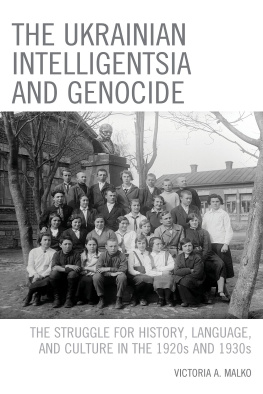
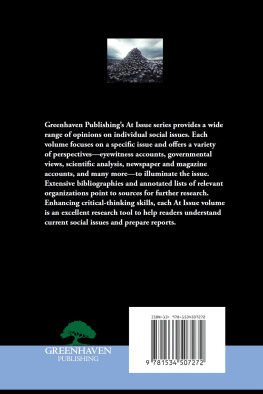
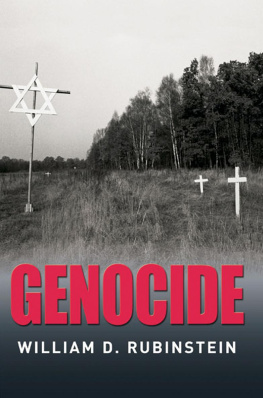
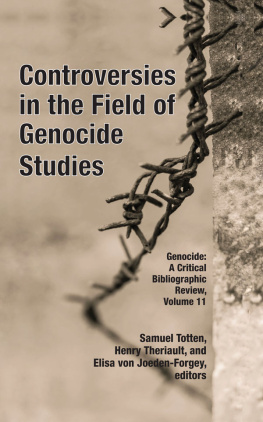
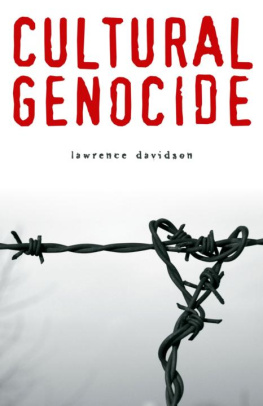

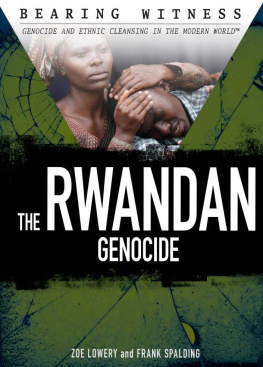
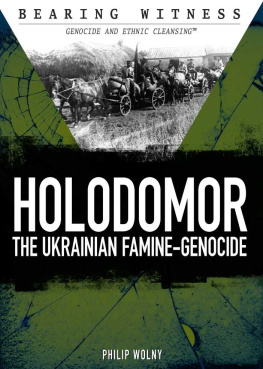

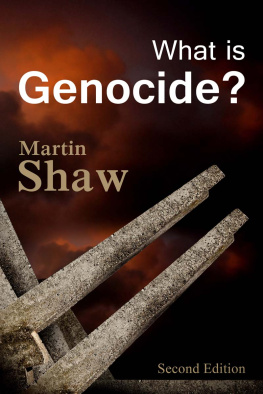
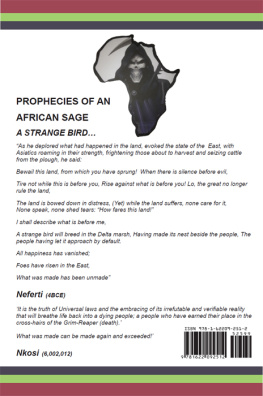

 The paper used in this publication meets the minimum requirements of American National Standard for Information SciencesPermanence of Paper for Printed Library Materials, ANSI/NISO Z39.48-1992.
The paper used in this publication meets the minimum requirements of American National Standard for Information SciencesPermanence of Paper for Printed Library Materials, ANSI/NISO Z39.48-1992.